Anatomy of an Era: Sonya Varnell, Part 2
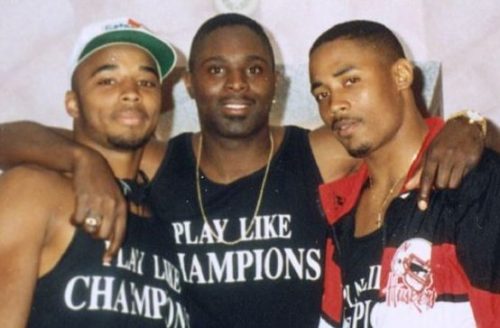
Excerpted from Chapter 87, No Place Like Nebraska: Anatomy of an Era, Vol. 2 by Paul Koch
Anatomy of an Era: Sonya Varnell, Part 2
Q: Did you have a lot of contact with Coach Osborne and other assistant coaches at the time?
SV: Coach Osborne would come and talk to me occasionally if there was a situation and he was trying to get a better understanding, and there were things that happened on campus with some of our players. And I don’t know how I became involved in it -maybe somebody from the Dean of Students called me- and I called Coach and left him a message and told him I thought we had a problem and we needed to discuss how we wanted to deal with it.
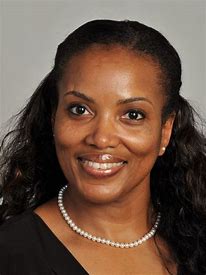
Coach would talk to me on occasion about a number of things, and I know he took a lot of flack for putting Lawrence Phillips back on the team after all that stuff happened with Kate (McEwen). And I really respect him for doing that, because at that time it was the right thing for him to do. Because Lawrence was so volatile, if he didn’t have football -which had been a big part of his life- either one of two things were going to happen: he was gonna to blame Kate for him not being on the team even though it was not her fault and he would try and do something to her, or he would say that everybody was against him and he would try to kill himself or something.
I felt that this young person -because of all the demons he had inside of him- that was the right move at the time. I know in Coach Osborne’s book -I didn’t read it, someone I knew told me about it- but he said in the Lawrence Phillips’ situation he wished he would have kicked Lawrence off the team. I don’t know if he said that -because I didn’t read the book- but that’s supposedly what he said. And I said to this person, ‘Do you know what? Hindsight is always 20/20. We can always look back and say what we should have done, but I believe in my heart that that was the right move at the time.’
Q: I was going to say… during that time did you ever feel like you were placed in a tight spot because all of the militant women’s groups coming out, using it as an occasion for grandstanding, raging about the happenings with Lawrence & Kate?
SV: Well, the difficult part of it was that it was just so hard for me to believe that Lawrence had actually done this. I mean, I knew he did it, but it was the dumbest thing. Here he is: he’s attractive and he’s a superstar. Women are throwing themselves at him and he can snap his finger pretty much and have any girl on campus, so why would he do this? Why would you do this? And I knew Lawrence had problems even before this happened, because I told you before about him cracking jokes and then getting in my personal space as if he was going to do something to me when I turned it back on him.
So what happened, Lawrence and I had had it out at the study hall one time because he was doing something he wasn’t supposed to be doing, because he was hitting on somebody. And I told him, ‘Look, I’m not trying to stop love from happening, but just let it happen after study hall’s over. You’re talking and disturbing everybody else.’ And he was like, “Why are you always getting up into my business? Why are you this… why are you that?” And I was like, ‘Wait a minute, young man. Your business? You’re the one in study hall running your mouth and disturbing people.’ And he got up in my business and in my face like he was gonna do something. And I was like, ‘I’m not going to have this anymore,’ and I called Coach Osborne.
So we had a meeting with Coach Osborne, he and I. And of course, when he was in that meeting he looked like a baby lamb, looking down at the floor and innocent. And basically Coach Osborne told him, “You are to respect her. She is a coach just like we are. And if you ever do that again you will find yourself not on this team anymore. Because we want you on the team, but we can have a team without you.” That’s what he told him.
Q: Wow. So much for the idea that football players at Nebraska were coddled and had their way…
SV: Right. And Coach wanted him to know that his behavior was not acceptable. I mean, here I am doing my job. All I asked him to do was just be quiet: ‘I know you’re waiting on this girl, but she’s trying to study. Maybe she’s waiting on you, too, but you’ve only got a few minutes. Just wait until ten o’clock and you two can go do whatever.’
Q: That’s funny: “I don’t want to do anything to get in the way of love….” (laughs)
SV: That’s right. What I said was, ‘I’m not trying to stop love from happening, but just wait until ten o’clock and you can do whatever. Just don’t do it in study hall.’
Q: I can actually hear you saying those words, Sonya…(laughing)
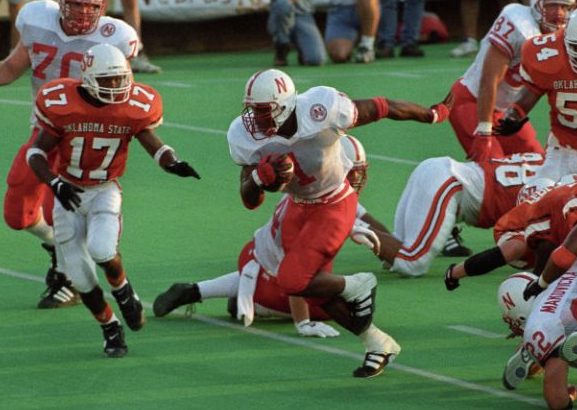
SV: Yeah, and the thing was -getting back to those women’s groups and everything- I felt like Lawrence should have been punished for what had happened, but I didn’t feel he should be kicked off the team. Like I said, he was young. And I told Coach Osborne and Dennis, I felt a long time before that that Lawrence had some issues dealing with women.
Whenever Dennis or Keith were there doing the study hall at night -I wouldn’t say that they had some issues with him- but basically they would give in to him and they wouldn’t really call him on it. They would say, “Okay, Lawrence, you need to stop talking.” But then he would just keep on doing it. And I told them that in the long run that’s not helping Lawrence as a young man to grow up, and there’s rules and regulations for a reason. If he kept doing what he was, ‘What makes you think the other athletes aren’t going to start doing the same thing?’ And they said, “Well, if we turn him into Coach Osborne he’ll get a (Unity Council) point” or something like that. But I said, ‘Yeah, but it’s still not helping him. Because it’s not stopping his behavior just because he gets a point.’ And like I told Lawrence, ‘The environment is set up for people to learn. And if you don’t want to learn, that’s okay, too. But just keep your mouth shut and don’t prevent other people who want to learn.’
Q: Branching off from what you told the parents who pulled you aside, what do you think the high graduation rate was attributable to? Any lessons you took away from the experience?
SV: Well, what I learned from Dennis and Keith -who worked mainly with football- they were on those guys and they rode them. And sometimes (the players) didn’t appreciate it. They were checking their classes and making sure they were there. Basically those two were breathing down their necks. And I know at the time those players didn’t appreciate it, but the things they were doing helped them to have a high success rate with graduation because they were on them. And if there was a problem with a class or something, they basically knew about it right away. And (even) if the professor didn’t tell us, we knew that a kid who was skipping a class wasn’t doing well.
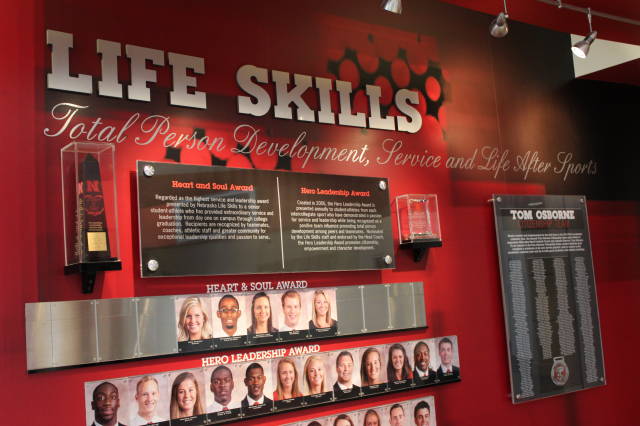
Q: Did you ever find yourself speaking to a parent mid-semester or late semester? Did you ever have any unique relationships due to your position?
SV: Oh yeah. Because one of the things that I know, especially with the African-American kids -whether they came from a one-parent or two-parent home- they all had that fear of failing and us calling their parents. I know all of them wanted to make their parents and family proud of them and they wanted to do well, so when I’d call a parent and say, ‘So-and-so is acting like a fool. He’s going to get kicked out of school,’ because they know I’m looking out for their son or daughter’s best interests. And I told them I would (do that) when we were recruiting them, and Dennis and Keith said that we would (do that) when we recruited them: “We’ve done our part, but your son or daughter is not doing their part. Therefore, this is our last resort -is to call you- because we don’t know what else to do. Otherwise he’s going to flunk out or be ineligible. And then what?” So then, you know, the mom or dad or grandparent would get on them, and they didn’t appreciate it.
And I told them that they wouldn’t appreciate it when it was going on, but one young man who I connected to on Facebook recently -a former player- when I was on Facebook a few weeks ago he messaged me. He said, “You probably don’t remember me…” and I said, ‘Yeah, I remember you.’ And he said, “You know what I remember about you?” And I was like, ‘No, what’s that?’ And he said, “I remember I told one of the swimmers (who was a foreigner) to go over to a bunch of guys and say, “What’s up, my nigga?” “(And, of course, the foreign kid did not know any better and he went over to say that and he got punched in the mouth) And he said, “Yeah, I remember you telling me how wrong I was and that it wasn’t right. And you turned me in to Coach Osborne and Coach Osborne got on my ass about it.”
And I started laughing. And I told him that I really don’t remember that situation, but I told him that I hoped he had grown up since then. And he said, “Yeah, for sure. For sure! I was wrong, because I knew he was new to this country and he didn’t know any better, so I told him that. And then he goes over to say that and he got punched in the mouth.” And I said, ‘Now that you say that, I’m starting to remember it a little. But what I do remember about you was that you had a lot of potential, but you were always trying to play the hard ass, like nobody could tell you anything.’ And he said, “Yeah, that was me. But I’ve grown up since then. I appreciate all the things that y’all did for me at Nebraska, even though I didn’t appreciate it at the time.”
Q: That’s beautiful. (laughs) Dennis and Keith have said basically the same thing…
SV: Exactly. But that’s what you were dealing with. They were seventeen, eighteen, nineteen, twenty-year olds and, of course, thought they knew everything. You know, you don’t necessarily want to be holding a kid’s hand, because they’re grown, ‘We shouldn’t have to be checking your classes to make sure you go.’ But that’s just part of the business, that’s just part of it. And they were very resentful, some of them. I remember standing outside a class and they’d be like, “Why are you over here? This is embarrassing to me.” And I was like, ‘Well, if you aren’t one of those who are missing class you don’t have anything to be embarrassed about.’
Q: Like a Guardian Academic-Angel, huh?
SV: Yeah. But again, I would say that attributed to the high graduation rate because we stayed on them. And not just black kids… everybody. Because we stayed on them.
Q: Any other coaches and interactions stand out to you?
SV: Coach Ron Brown and Mrs. Brown were very, very nice and friendly. You know, she kind of took me in and told me places I could go to get my hair done and things like that.
I loved Coach Solich, just loved him. Because he and I would chit-chat a little bit, you know. During lunch time I worked out and he would be in there, too. So we’d chit-chat a little bit.
And Tony Samuel. I just love Tony. He and his wife and I, we went out to some places for some reggae or jazz from time to time. Or we’d end up at the same place, some little hole-in-the-wall.
Q: The Zoo Bar?
SV: The Zoo Bar, and I’m trying to think of the other one. I’m sure when I get off the phone with you it will come to me.
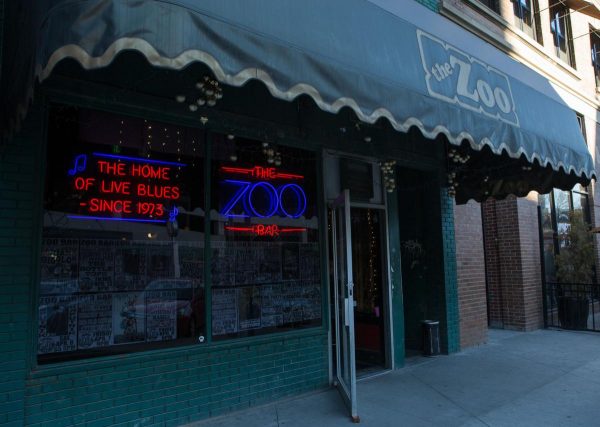
And Turner (Gill)… I always loved talking to Turner, because I could get a perspective from him since he did go to school there and he knew exactly what it was like being a student-athlete there and being an African-American male. That helped me draw up some of the programs I would try to do for some of the young men, some of the things I would have liked to have gotten involved with.
Q: What contribution are you most proud of?
SV: Hmmm… That the student-athlete -whether they were white, black, male or female- knew that I genuinely cared about them as a person; not what they could do on the court, the track, whatever. Because a lot of the sports -tennis, track, swimming, golf, they still stay in touch with me- and when I was diagnosed with breast cancer they all would call me and e-mail me and try to get in touch with me.
Q: Where were you when that happened?
SV: I had come back to Mississippi. I was actually in Germany when that happened, but I had come back to Mississippi. And I had called Dennis and told him what was going on, and I guess Dennis told everybody. And they were all writing me and calling me and everything.
Q: What was it that precipitated your leaving Nebraska?
SV: Oh, I just felt like it was time for me to go. I don’t know if you ever noticed this or not, but I was the only African-American female in the entire department. You talk about secretaries, janitors, everybody. And then my daughter was at the age of liking boys and such, and she was one of two black kids at the school and I didn’t know how it was going to turn out. I didn’t want her to be in a situation where she wasn’t comfortable with herself because she was the only one who didn’t have a date.
Q: Sure. I can understand that concern. But then you up and move to Germany of all places?!
SV: Well, actually I had put in a proposal -because one of my dreams was to work for the United Nations. I had gotten a degree in Political Science, my undergraduate. So after leaving Lincoln I felt I needed to get some international experience in order to get myself situated -to get with the United Nations. One of my girlfriends was married to a German and was going to be living in Germany, so we did a search on different types of opportunities to work or study, so I put forth a proposal to this one foundation. And there were hundreds, a thousand proposals that were put forth, and I was one of ten Americans they accepted. My proposal was one of the ten they had selected among the many that were available to them. I felt that it was just time, even though I really enjoyed it and I loved the people at Nebraska. But I really didn’t see myself advancing anymore, because Dennis and Keith were not going anywhere.
Q: I hear you. I was in the same spot.
SV: Yeah, you were in the same situation. It was about that time, after four years my daughter was becoming a teenager and getting ready to be in junior high, so I felt like it was in my best interests to move somewhere where it was a little more diverse. And you wouldn’t believe all the black people there were in Germany. (giggles) There were more in Germany than there were in Nebraska!
Q: You know, when I think of alcoholic beverages I think such drinks as the White Russian, but I’ve never heard of one called the Black German!
SV: (laughs) And the thing is: all these black people, they’re not American, they’re from Africa. They’re from all over: Togo, Nigeria, wherever, and they’re married to Germans. And with the U.S. having bases over there, you run into all sorts of military people that are American.
Q: So what are your fondest recollections of your time in the frigid climes of Husker Nation?
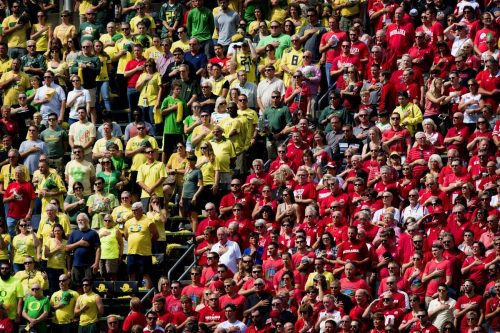
SV: Oh, I loved football game day, just all the people and how all excited everybody was. I loved volleyball game day because it was small and they were packed in tight and we were all in there, and I can only imagine how the visiting team felt. I loved the swim matches and the track meets.
But most of all, Paul, I loved my time there…. and my fondest memories are the people from my church. I went to Mount Zion Baptist Church and my pastor was a professor on campus, the Reverend Dr. Michael Combs, a political science professor. I met a lot of the neighbors, so to speak, black people who were from Lincoln. They didn’t necessarily work at the university but they were from Lincoln, Nebraska, and we stay in touch to this day.
Q: Son of a gun! I thought I went to the only predominately black church in Lincoln…
SV: No, there were a few. And I made a list of them when I was there, that I gave to the parents of recruits, because parents were concerned about where their kids could worship. So I gave them the information as to where they were located and if anybody needed a ride all they had to do was call up and the church would send a bus to come pick you up if you lived on campus.
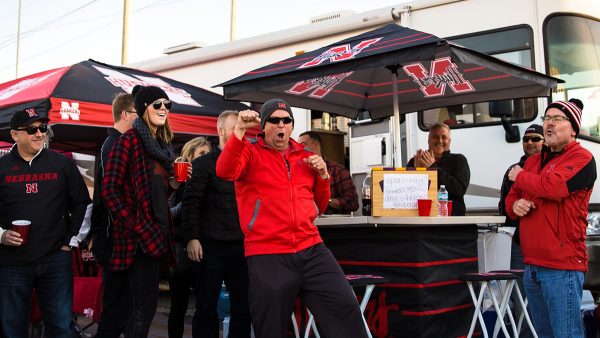
Q: That’s cool. Well, Sonya, you’ve given me an hour of your time here, and I appreciate it. You really nailed it as far as your being there at the depth of the riches of Cornhusker Football in that span of time. And please tell me, how would the Nebraska game day experience differ from that of Southern Miss (where you are) and even Ole Miss, where you first attended college?
SV: In the South, tailgating is a big thing. They almost start the night before. Because of the climate at Nebraska I didn’t really see a whole lot of tailgating -and that’s not to say that people didn’t- but not to the degree that they do it in the South. But in Nebraska, whether they tailgated or not, whether they had money or didn’t have money, whether you were a farmer or a doctor, everybody wore Nebraska Red. Everybody. So on that one particular day everybody was on the same level. And even though we have the class system in America, on that particular day it didn’t matter if you were from the North side of O Street or the South side of O Street, that day everybody had the same purpose. It was the entire state’s team. It was ‘our’ team. And whether I was going into the Hewitt Center that morning for recruiting or whether I was changing my clothes and going out to see the game, the whole time everyone was always, “Go Big Red!”

Available on Amazon.com
And people are always talking BCS and all that stuff, and I go, ‘Look, I got two national championships.’ And they go, “What?! You got a national championship in track?” And I tell them, ‘No, in football. I was a Cornhusker!’ (laughs) I’m still a Cornhusker. Whenever they play, as long as it isn’t against the school I’m working for, I’m for Nebraska. I want them to win and I want them to do well.
Q: What is the definition of a Cornhusker, for you?
SV: To me, just looking at the mascot, you know, I’d say a Cornhusker was like a farmer or whatever. But I guess I’d have to say a Cornhusker is a person, male or female -no matter what- they support the University of Nebraska… and no matter the sport. And one of the most beautiful things I saw when I was there -and here Johnny Rodgers was a superstar back in ‘71 or ‘72, around that time- and even though that was the case, when I was there in the ’90’s and the way people reacted to him, you would have thought he had just finished playing ball.
And what I really respected about the people of Nebraska was, they never forget their heroes and their stars. And when Tommie Frazier went off and didn’t get drafted in the NFL and he went off to Canada and had the blood clots again and he was back on campus again, I told him that I knew he was disappointed that his career was not going to turn out the way he thought it would. I said, ‘You’ve got to think that God has another plan for you. And I don’t know what that plan is -that’s between you and God- but one thing I do know is that if you stay here in Nebraska the people will never forget what you’ve done here. You will always be a part of this place, including me, no matter what. I don’t care how many years go by.’
Q: Would you say the fans are too supportive, almost to a fault?
SV: Well, I remember back in ’94, was it? There was a game against Colorado, I think, and there was a blizzard. A blizzard! You could hardly even see the lines on the field that day! And just like you guys, I’m going into Memorial Stadium earlier that morning for recruiting and I see some fans milling about and I’m thinking, ‘Sure, some fans will be here today… but not as many in the stands as usual.’ So when we’re all done with recruiting I go out there to the field and I found out how wrong I was. There were as many fans there as there would have been if it was 70 degrees! And here I was running back into the Hewitt Center during the game to grab some hot chocolate to keep me warm!
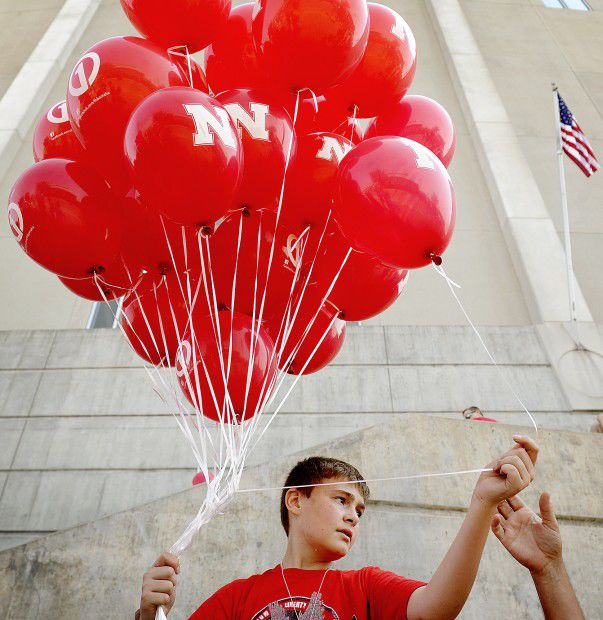
Q: Husker Fever is a sickness…
SV: It’s a great, beautiful sickness. It was great times, really good times. And the friends that I met there? They’re not friends, they’re my family. My neighbors, Don and Kim Clark and their kids -and here Kim is white and blonde and tall, and here I’m black and short- and I’d tell people that we’re sisters. And people would look at us kind of funny when I’d introduce them to her, ‘Hi, I’d like you to meet my sister, Kim.’ (laughs) It was a great experience. I met some great people.
End conversation.
Sonya’s experience is a representative sample of the typical thought process that many a Nebraska student-athlete has partaken of and gone through over the years. Other than notoriety from the annual hype and hysteria of the historic, year-end Oklahoma-Nebraska tilts of those days (where so much hung in the balance from a national perspective), the state itself was, strangely enough, something of an unknown quantity. The odds seemingly stacked against it from a number of angles, wouldn’t you know that the prime recruiting season always fell around the dates on the calendar with the most vicious of winter welcomes. Particularly for those hailing from the balmier climes, it was often said that Nebraska was ‘pure winter’, some sort of mythical North American Siberia with a constant winter harshness. That’s how some recruiters used to put it when up against the Cornhuskers for a young man’s talents, so you might imagine the selling that had to take place to turn a young man’s favor to the Cornhuskers come national signing day. But it’s amazing what a winning tradition, top-notch facilities and honest, caring, easy-to-know people can do to allay the fears of a concerned parent. I appreciated Sonya’s mention of being pulled aside for a measure of truth amid the ‘sales job’, as it gave us a glimpse into the process and pride in becoming a Nebraskan, even if only for a few short years.
We also had a glimpse at the measures the academic staff would take to ensure proper study habits and class attendance. After all, this was an institution of higher learning that happened to possess a darn good football team, and not vice versa. I guess that’s one thing that I often took for granted before traveling much outside the sphere of the Nebraska Athletic Department culture, as there were -and still are- some out there who have it bass-ackwards. The most glaring stories come by way of the example of numerous college basketball squads and their shamefully shoddy graduation rates (I won’t bore you with the details here, as that’s a whole other topic of interest). Needless to say, it should be apparent from Sonya’s recollections that this was anything but a proverbial ‘football factory,’ the term many a lazy journalist has used to paint programs of Nebraska’s stature. Even so, the ‘assembly line’ in Lincoln involved a great degree of time, hard work and accountability on the student-athletes’ account. That described the academic side as well as the athletic, affording all the opportunity of a well-rounded educational experience.
Notable quote #2:
Sonya Varnell on providing her Nebraska Football recruiting perspective: “It’s going to take a little adjustment. The people aren’t bad people. Even though their skin color might be a little different they’ll treat you fairly.…this is the place to be, because the University of Nebraska is graduating African-American kids -male and female- at a higher rate than the rest of the country.”
Copyright @ 2013 Thermopylae Press. All Rights Reserved.
Photo Credits : Unknown Original Sources/Updates Welcomed
Author assumes no responsibility for interviewee errors or misstatements of fact.